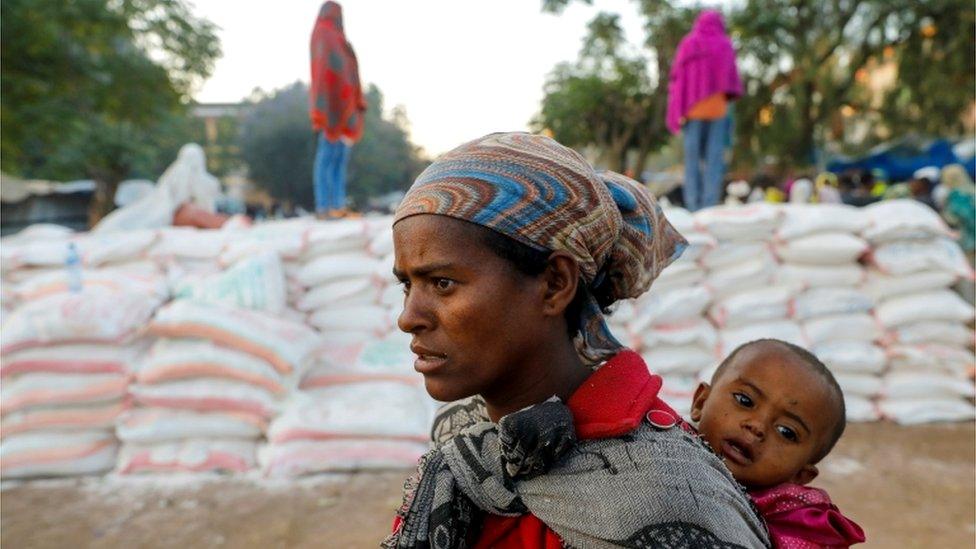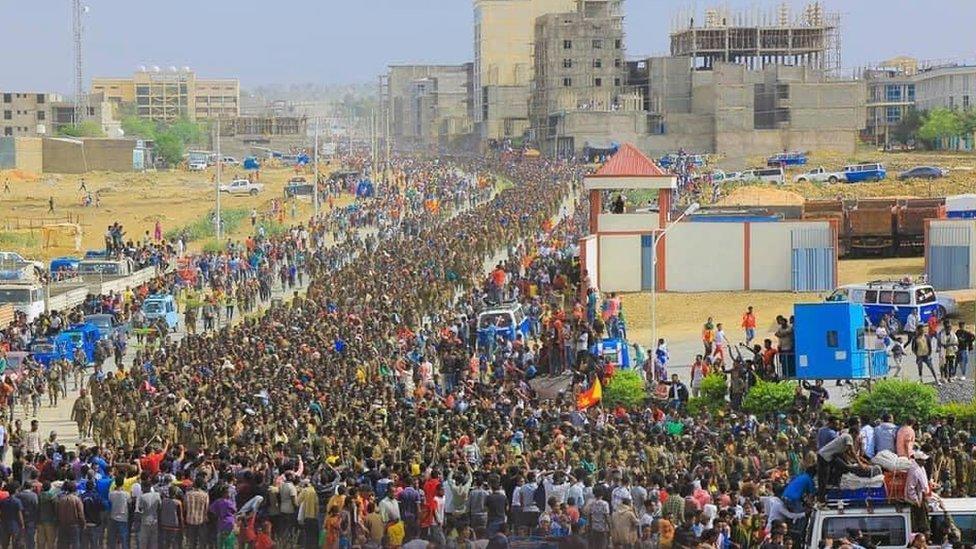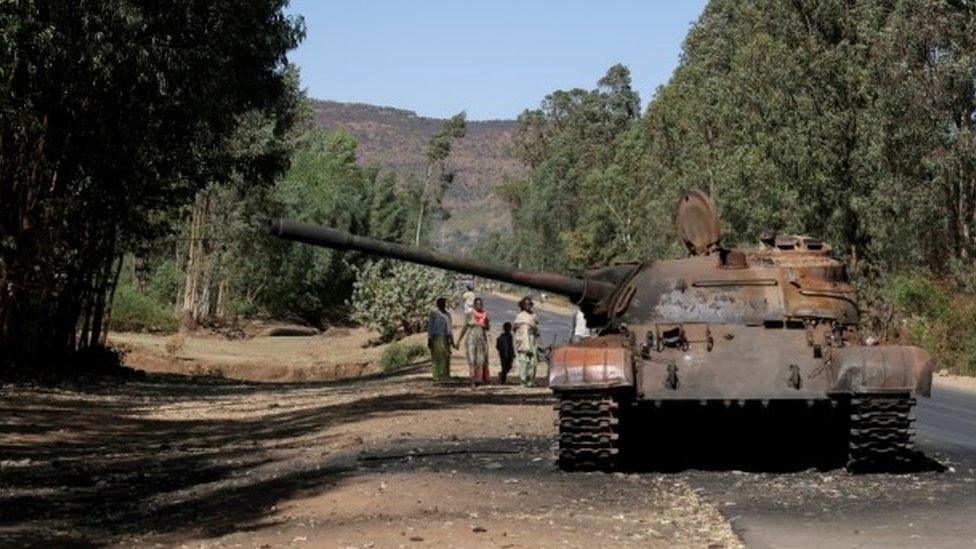Ethiopia Tigray conflict: Famine hits 400,000, UN warns
- Published

Fighting between the Ethiopian government and forces in its northern Tigray region has thrown the country into turmoil
Recent fighting in the Tigray region of Ethiopia has resulted in a famine that is now affecting more than 400,000 people, UN officials say.
In its first public meeting on the crisis, members of the UN Security Council warned that as many as 33,000 children were severely malnourished.
Officials said that a further 1.8m people were on the brink of famine as a result of the eight-month conflict.
They also warned of further clashes despite the declaration of a ceasefire.
The Ethiopian government, which has been fighting regional forces in Tigray, declared a unilateral ceasefire on Monday.
However, rebels vowed to drive their "enemies" from the region and there have been reports of sporadic clashes as pressure builds internationally for all sides in the conflict to pull back.

Captured Ethiopian soldiers are paraded through the Tigrayan regional capital Mekelle on Friday
The fighting between the Tigray People's Liberation Front (TPLF) and government forces has already left thousands of people dead and more than two million people have been displaced.
All sides in the conflict have been accused of carrying out mass killings and human rights violations.
On Friday, several thousand captured Ethiopian soldiers were paraded through the streets of the Tigrayan regional capital Mekelle.
On Friday, the UN's acting humanitarian aid chief told members of the Security Council at a meeting in New York that the situation in Tigray had deteriorated dramatically in recent weeks, external.
The region was experiencing "the worst famine situation we have seen in decades", Ramesh Rajasingham said.
"Close to 5.2 million people still require humanitarian assistance - the great majority of them women and children," he added.
The Ethiopian government has denied allegations that it is been blocking aid after Tigrayan rebels took control of much of the northern region earlier this week.

Tigray - the basics
Ethiopia is divided into 10 regional states defined on ethnic grounds and described as largely autonomous, but with central institutions
In 2018, following anti-government protests, Abiy Ahmed took over as PM and introduced reforms
Powerful politicians from Tigray, Ethiopia's northernmost state, accused Mr Abiy of trying to increase federal power
Relations worsened and, after the government accused Tigrayan rebels of attacking military bases, the Ethiopian army moved in in November
Mr Abiy declared the conflict over in late November, but fighting continued and increased ahead of national elections on 21 June


The UN political affairs chief, Rosemary DiCarlo, told the meeting that further clashes were likely between Tigrayan forces, the Tigray Defence Forces (TDF), and Ethiopian troops, supported by Eritrean soldiers and Amhara regional forces.
"There is potential for more confrontations and a swift deterioration in the security situation which is extremely concerning," she said, adding: "We urge the TDF to endorse the ceasefire immediately and completely."
The fighting began last November, when rebels rejected political reforms and captured army bases. Government forces captured Mekelle later that month.
Following a rapid offensive, rebels retook Mekelle and earlier this week entered the town of Shire, about 140km (90 miles) to the north-west, according to UN officials.
Supporters of rebel forces in Ethiopia's Tigray region celebrate as Eritrean forces leave the town of Shire
- Published30 June 2021

- Published15 February 2021

- Published26 February 2021
